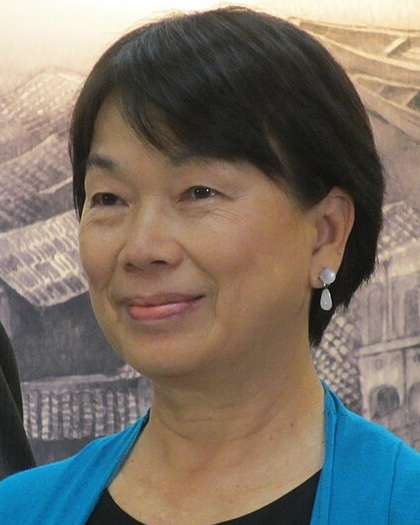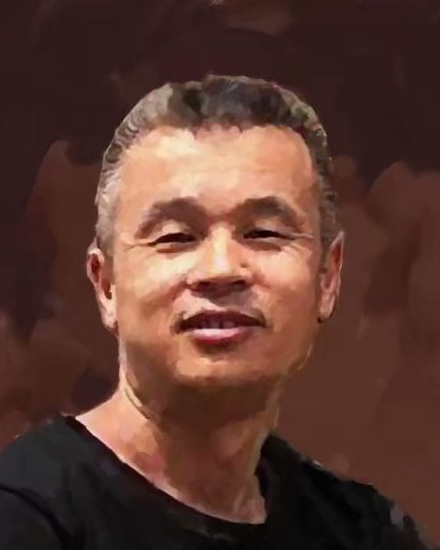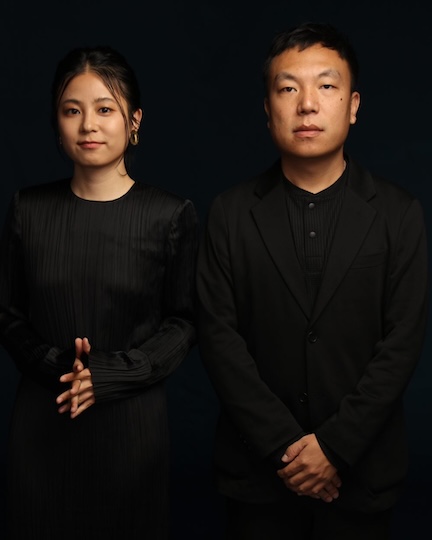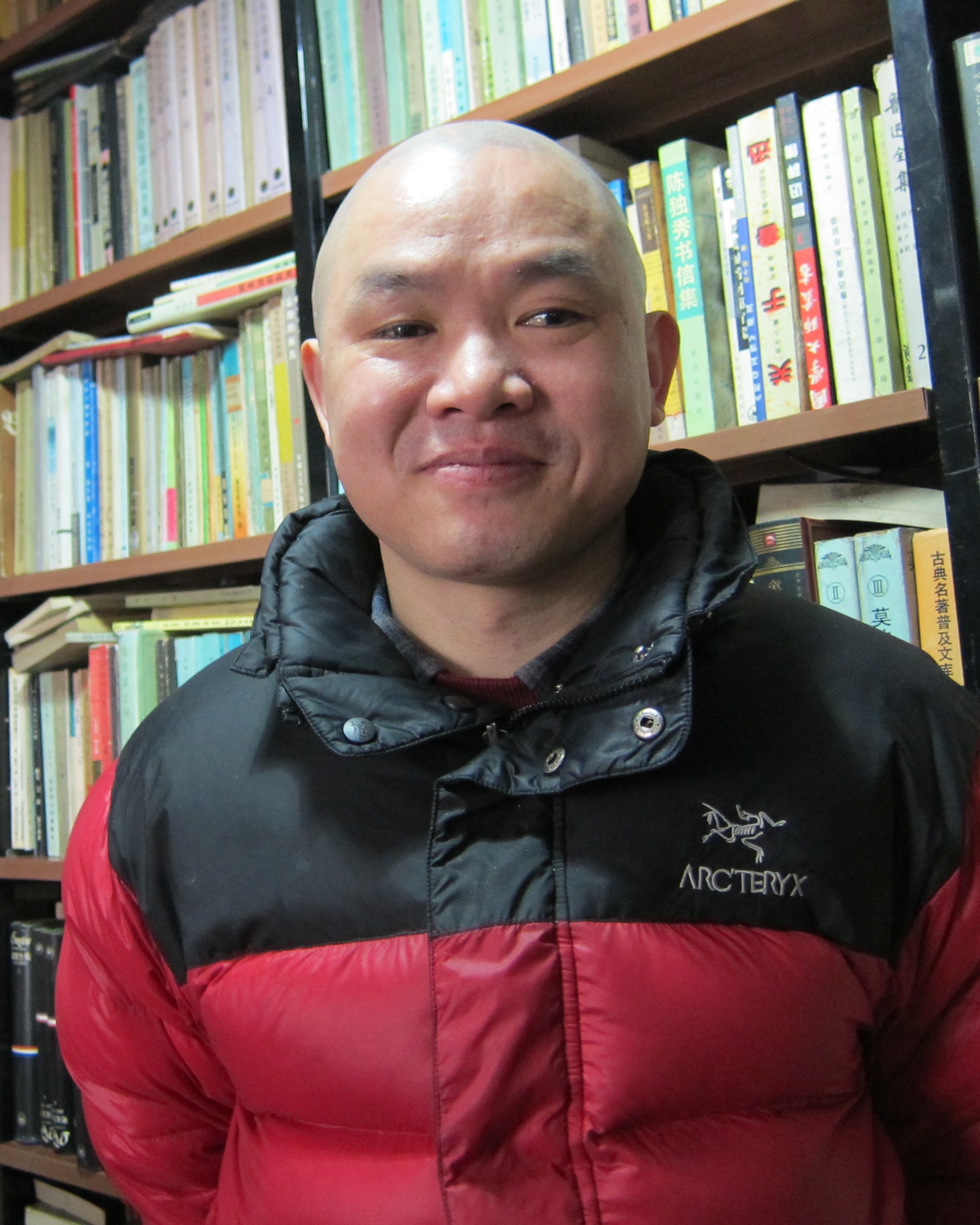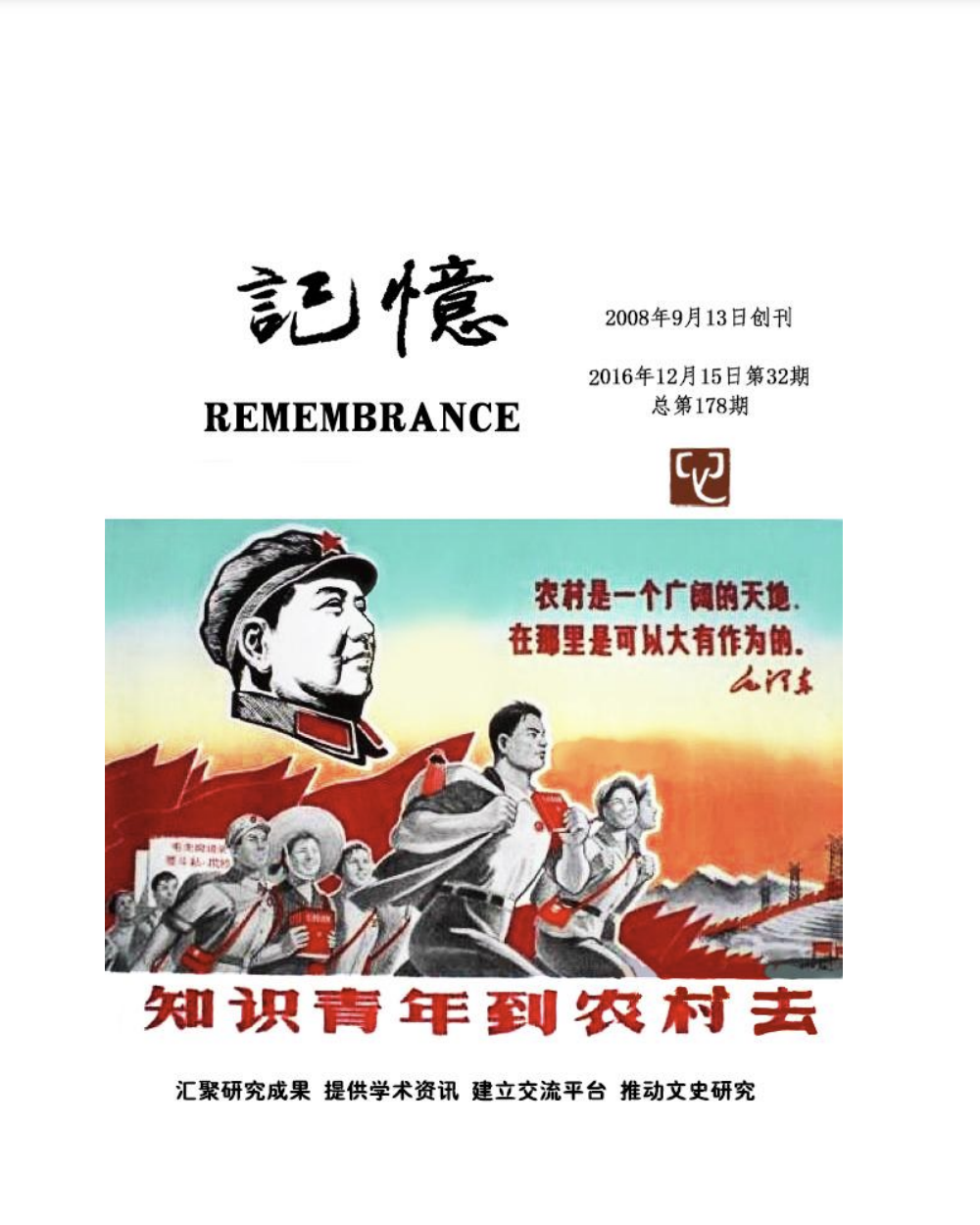Explore the creators
Showing 232 creators in the collection
232 creators
Lung Ying-tai
Lung Ying-tai (February 13, 1952-) is a Taiwanese writer, literary critic, and Taiwan's first Minister of Culture. Lung is a native of Kaohsiung and her parents moved to Taiwan during the Chinese Civil War. She graduated from the Department of Foreign Languages and Literature of National Cheng Kung University, and later received a doctorate in English and American literature from Kansas State University. She has taught at various universities in Taiwan, Hong Kong, the United States, and Germany, during which time she published a large number of works, including essays and novels, which have been collected into books.
In 1999, at the invitation of then Taipei Mayor Ma Ying-jeou, Lung became Director of the Department of Cultural Affairs of the Taipei City Government, stepping down in 2003. In July 2005, Lung established the Lung Ying-tai Cultural Foundation. In 2012, she became the Minister of Culture of Taiwan (Republic of China), stepping down in 2014 with the general resignation of the Cabinet.
Lung has published a number of influential works, including Ye Huo Ji (The Wild Fire Collection), Mu Song (The Farewell), and Qin Ai De Andelie (Dear Andreas). One of her most influential works, Da Jiang Da Hai 1949 (Big River, Big Sea: Untold Stories of 1949), a reflection of the Chinese civil war and the Kuomintang’s treat to Taiwan, was banned by Beijing the same year it was published in 2009. In 2019, China banned all of Lung's books due to her expressed support for Hong Kong's Anti-Extradition Bill movement.
Luo Huilan
Luo Huilan (1952-), a native of Nanchang, Jiangxi Province, has been engaged in the research of CCP party history and party building since the 1970s, and served as a professor at the Jiangxi Provincial Party School, the vice president of the Jiangxi Modern Chinese History Society, and the deputy secretary-general of the Chinese Society of History of Communist Party of China.
Luo Pinghan
Luo Pinghan (1963-), a native of Anhua County, Hunan Province, graduated from Renmin University of China in 1998, majoring in the history of the CCP, and obtained his doctorate degree. He served as a professor and deputy director of the Department of Social Sciences of Guangxi Normal University, and is now a professor and doctoral supervisor in the Department of Party History of the Central Party School. Luo has published several monographs on the history of the CCP, including *History of the Land Reform Movement*, *History of the Agricultural Cooperative Movement*, and *History of the Rural People's Commune.*
Mu Xin
Mu Xin (July 11, 1920 - September 3, 2010) was a native of Fugou, Henan Province. Mu joined the Communist Party of China in 1937 and participated in resisting the Japanese aggression in Shanxi Province. In 1938, he founded the newspaper <i>Combat</i> and served as a bureau chief and special correspondent of a local war zone news agency; in 1940, he co-founded the <i>Anti-Japanese War Daily</i> (later called the <i>Jinsui Daily</i>), serving as the director of the news and interviews department and director of International News Agency’s local station; he also served as Xinhua News Agency’s special correspondent and bureau chief of its local war zone office.
After the founding of the People's Republic of China, Mu served as director of Xinhua News Agency’s local offices, propaganda director of the Chinese People's Volunteer Army and the PLA Military Engineering Institute in Harbin, and director of the Journalism Department of CCP’s Central Party School. After 1957, Mu served as the party secretary, deputy editor, and editor-in-chief of the <i>Guangming Daily</i>.
During the Cultural Revolution, Mu was a member of the Central Cultural Revolution Group, before he was persecuted for allegedly opposing the movement and insulting Jiang Qing —the Group’s deputy director and Mao’s wife. He was imprisoned in 1968. After his release in 1975, he served as deputy director of the Foreign Languages Publishing Administration, as well as director and editor-in-chief of <i>People's Pictorial</i> before retiring in 1984. He died of illness in 2010.
Mu Xin is the author of a number of books, including <i>Recollections of Ten Years in Guangming Daily</i>, which discusses the major events and issues in the ideological field in the decade after 1957, and <i>Long Memories after the Disaster: Chronicle of Ten Years of Turmoil</i>, which discusses the Cultural Revolution.
Pei Yiiran
Pei Yiran (1954—), a native of Hangzhou, is a scholar and writer. During the Cultural Revolution, Pei worked in the northernmost China as a send-down youth. In 1978, he was admitted into the Department of Chinese Language and Literature of Heilongjiang University, and went to work in the Zhejiang Provincial Committee of the Chinese People's Political Consultative Conference after graduating in 1982. In 1984, Pei began to teach literature in the Zhejiang College of Political Science and Law. From 1986 to 2000, he served as a lecturer, and later an associate professor, in the Zhejiang Broadcasting and Television College, during which he earned a master degree from the Department of Chinese Language and Literature of Hangzhou University, as well as a doctorate from the same department of Fudan University. In 2000, Pei became a professor in the School of Humanities at the Shanghai University of Finance and Economics, and later became vice dean of the School and head of the Department of Journalism.
Pei faced suppression from authorities for writing and publishing articles and books critical of the CCP, and went into exile in the United States since 2017. He was a visiting scholar at the School of Historical Studies of Institute for Advanced Study in Princeton, and became an associate research fellow at the East Asian Institute at Columbia University in 2020. He also served as the ninth president of the Independent Chinese PEN Center from May 2020 to September 2022.
Pei's research interests include Chinese literature, Chinese intellectuals, and twentieth-century Chinese history, and he has published a large number of books and academic papers, including *Choices and Explorations of Chinese Intellectuals*, *Red Life History - The Revolutionary Years (1921-1949)*, *Historical Evidence of the Red Disaster: Causes of the Great Famine*, and *Why Is This? – Causes of the “Right” Disaster*.
Peng Lifa (Peng Zaizhou)
Peng Lifai (1974–), an activist and dissident, whose online pseudonym is Peng Zaizhou, was born in Tailai County, Heilongjiang.
In October 2022, during the period of "zero-COVID", and while the Chinese Communist Party held the 19th Central Committee's Seventh Plenary Session, the 20th National Congress, and the 1st Plenary Session of the 20th Central Committee, two banners appeared on the bustling Sitong Bridge in Beijing on the morning of October 13. One banner read: "We want food, not nucleic acid tests! We want freedom, not lockdowns! We want dignity, not lies! We want reform, not the Cultural Revolution! We want votes, not a dictator!" The other read: "Strike, walk out of classes, and remove the dictatorial traitor Xi Jinping." The protesters also played sound equipment to publicly oppose Xi Jinping, referring to him as a "dictatorial traitor," while setting tires on fire to create thick smoke in order to attract attention. Afterward, the protester stayed at the site, allowing the police to arrest him, and firefighters cleaned up and extinguished the fire.
Shortly after the incident, the protester's Twitter account was found under the pseudonym Peng Zai Zhou, with the real name Peng Lifai. His Twitter <a href="https://twitter.com/lifa_Petter">@lifa_Petter</a> bio read, "A craftsman who loves freedom, science, and philosophy." Most of his content was deleted after his arrest, including his posts promoting the protest. His planned protest date had been October 16, the day the 20th National Congress of the Communist Party of China was held. Some believed that Xi Jinping would most likely extend his tenure as both Party General Secretary and President, breaking the principle set during Deng Xiaoping's era to abolish lifetime leadership positions and seeking a third term.
Before carrying out the protest, Peng Lifai had published a strategic guide for strikes and boycotts on ResearchGate. This 20-chapter document, spanning 21 pages excluding the cover and table of contents, summarized Peng's personal political ideas and served as an explanation of his actions.
Peng Lifai’s whereabouts are now unknown, but the incident is seen as a rare protest movement in recent years. Some media have called Peng "the lone brave one," "the bridge man," or "the Sitong Bridge man." Many dissidents have compared him to the "Tank Man," referring to him as the "new Tank Man"--a reference to the long person who stood in front of tanks on Chang’an Avenue after the 1989 Tiananmen massacre. Following the Sitong Bridge incident, the Chinese government imposed strict censorship on platforms like WeChat and Weibo. The protest received support from dissidents around the world, with many expressing solidarity by sharing protest posters online. According to a platform that tracks global dissent on Instagram, by October 23, 2022, over 1,500 reports of anti-Xi slogans had been submitted from more than 328 universities worldwide.
A netizen, felixxxlife, <a href="https://chinadigitaltimes.net/chinese/688534.html">commented</a>, "Each of us Chinese is living in a history shaped by him. I do not intend, nor do I have the power, to blow any trumpets. But I have a faint hope, for myself and for those who read these words: I hope more of us can realize that we are living in a massive lie and attempt to resist it—by all means possible. (Also, if possible, please don't forget the suffering of yourself and others.) As for how to resist, a warrior has already given his answer through action; and for the cowardly among us, at least we can start here: learn to live, speak, and act with integrity—no self-deception, no ignorance, no compromise."
Qin Fuquan
Qin Fuquan (1929-2008), a native of Wuxi, Jiangsu Province, was the nephew of Bo Gu (Qin Bangxian). In order to raise funds for the Eighth Route Army during the second Sino-Japanese War, Qin's father, Qin Bangli, went to Hong Kong in 1938 to set up Liow & Co. (the predecessor of the China Resources Group), which was responsible for storing and transporting supplies and funds raised overseas, and Qin went with him; he was admitted to the Hong Kong Polytechnic University. In 1948, when Qin’s father secretly sent a group of China Democratic League members to mainland China to prepare for the establishment of the Committee of the Chinese People's Political Consultative Conference, Qin went with the group to Harbin. In 1950, Qin joined the Chinese Air Force and worked at the Air Force Engineering Department. In 1958, Qin was labeled a Rightist and assigned to work as a farmer in the Great Northern wilderness after demobilization. During the Cultural Revolution, he was also labeled an "Escaped Rightist" and was exiled to work in a farm. He was released in 1973 and then worked in an agricultural machinery factory and a diesel engine factory etc., retiring in 1989 and died in Beijing in 2008.
Qin wrote *Bo Gu and Mao Zedong - and the Leaders of the Chinese Soviet Republic*,in which he describes some important historical points in the early days of the Chinese Communist Party, the various activities among the top leaders of the CCP, such as Mao Zedong, and their relationships through the narratives and circumstantial testimonies of a number of knowledgeable people.
Remembrance (Journal)
“Remembrance” is arguably the most important journal of alternative history in the history of the People's Republic. Founded in 2008, it has published more than 250 issues, all of which are held by the China Unofficial Archive.
The issue we chose for the highlight issue number 112 from April 30, 2014. It deals with one of the most controversial episodes of the past decade, an effort at an apology by some of the women involved in the killing of the school teacher Bian Zhongyun. Bian's killing is one of the most famous incidents in the Cultural Revolution, commemorated by the independent film director Hu Jie in his classic film “Though I Am Gone” (also held in the archive). One of the then-school children widely seen as being responsible for Bian's killing was Song Binbin, who soon afterwards was honored by Mao on the rostrum at Tiananmen. Years later, in 2014, Song gave an apology for her role in Bian's killing. Although denying direct responsibility, she said that she and the other girls in the school didn't stop the other students from torturing Bian to death and thus bear responsibility.
In this issue, Song's apology is analyzed on page 19 by one of the founders of Remembrance, who wrote the article under the pseudonym Qi Zhi. On page 3, one of Song's friends, Ye Weili, gives a long account of the day when Bian was killed. Other authors in the issue also chime in with their analyses of the events, the adequacy of Song's apology, and who ultimately bore responsibility for Bian's death–the girls who turned on their teacher, or the system that raised and encouraged such barbaric behavior?
